Indian Affairs 1856: Joel Palmer’s Diary
Joel Palmer was an extremely busy man in 1856. In the midst of traveling back and forth across Oregon, he was ordering supplies, directing employees, and negotiating with…
Joel Palmer was an extremely busy man in 1856. In the midst of traveling back and forth across Oregon, he was ordering supplies, directing employees, and negotiating with…
In 1856, Joel Palmer had some 4000 Natives removed from their homelands to the Coast and Grand Ronde Indian Reservations. Up to at least April of 1856 the…
In numerous essays on this blog I have noted that many of the tribes considered the most violent, and those who had participated in the wars in southwestern…
Much has been written about the impact of pandemics on indigenous populations. Columbus and his exploratory contemporaries brought slavery and conquest to the new worlds, and that conquest…
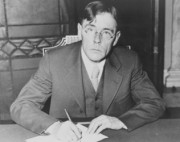
As Commissioner of Indian Affairs, John Collier was a long-term advocate for Indian tribes. In the 1920s, John Collier, a trained sociologist, led efforts in Washington, D.C. to…
Special Indian Agent J. Ross Browne famously came to the Northwest reservations in 1857 and wrote reports of the conditions of the tribes on the reservations. The following…
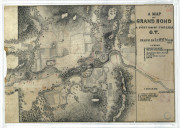
Previous essays have addressed the poor treatment of the tribes on the Grand Ronde Indian Reservation into the late 1860s. In 1869 during his inauguration speech, newly elected…
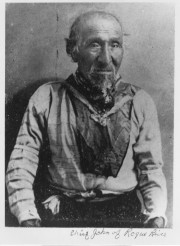
Chief John, Tecumtum, was the leader of the Rogue River Confederacy for over a year in southwestern Oregon. The Confederacy formed when tribal bands on the Table Rock…
Digging through previously collected digitized documents, I found several accounts of removal of the tribes to the Siletz Reservation. These are worthy of commentary for the historical origins…
Joel Palmer was the Indian Agent at the Siletz Agency in 1871 and had responsibilities, as emphasized in his 1871 journal, over continuing to removing Indians from the…
In 1874, Joel Palmer was again an independent contractor for the Indian service, after having completed a two-year stint as the Indian Agent for the Siletz Agency. Palmer…
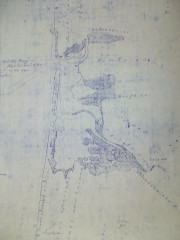
The Siletz placename is something of a mystery. Leo J. Frachtenberg, the ethnologist assigned to collect native languages on the Grand Ronde and Siletz reservations in about 1913, …
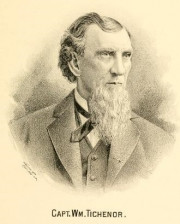
In July 1851, Captain William Tichenor decided to begin his project to colonize and claim the Port Orford area. He envisioned that the establishment of a town at…
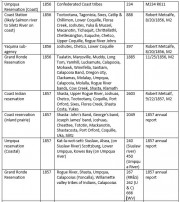
Removal of the western Oregon tribes to the reservations was a tumultuous affair. Caravans from the Umpqua and Table Rock reservations to place in the dead of winter…

Reservation Health Reports previous to the 1870’s are fairly rare. there are about two reports a year for each reservation. The annual reports also have some health information,…
In the 1860’s the western Oregon reservations were still struggling with feeding all the Indians despite promises by Indian agents, and the treaties, that when they removed,…
Albert B. Meacham was an Indian agent in the 1860’s and 70’s and oversaw some changes in the reservations. He attempted to give the tribes some voice in…
I have previously written about how the coastal tribes were relocated to several river estuaries within the Coast Reservation (Siuslaw, Yachats, Alsea, Nashesne, Siletz and Umpqua). There the…
The Grand Ronde Indian reservation was a sudden change in plans for Joel Palmer in 1855. When the Rogue River war began, and other conflicts with tribes north…
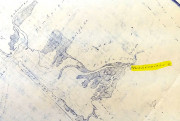
In the map collections of Oregon Historical Society there is a selection of Coast Survey maps. Most of these maps date from 1874 and there are some later.…
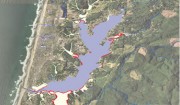
Devil’s Lake is in Lincoln City, in fact it is the only such lake and state park completely contained within a city in Oregon. The Continue reading

As addressed in previous essays, in about 1875, most Indian annuities for the Western Oregon tribes ended because the 20 year payments were exhausted. This Continue reading
The year 1876 appears to have been a key year to discuss further reductions of the Siletz Reservation. The original Coast reservation was a Continue reading
Oregon Tribal Languages have been endangered for over 100 years. From an original base of some 100 languages and dialects, the number of surviving Continue reading